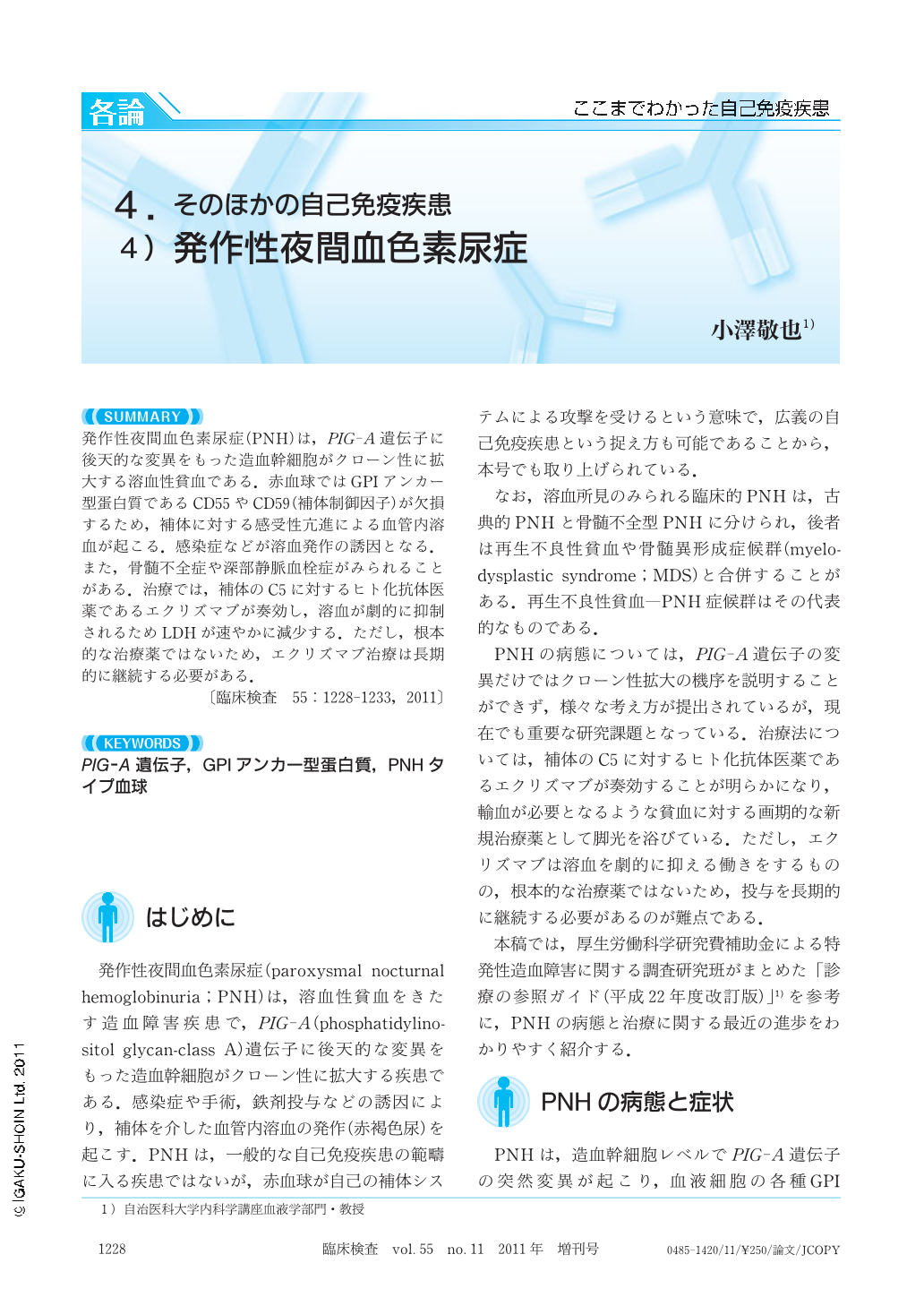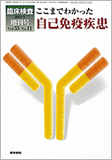Japanese
English
- 有料閲覧
- Abstract 文献概要
- 1ページ目 Look Inside
- 参考文献 Reference
発作性夜間血色素尿症(PNH)は,PIG-A遺伝子に後天的な変異をもった造血幹細胞がクローン性に拡大する溶血性貧血である.赤血球ではGPIアンカー型蛋白質であるCD55やCD59(補体制御因子)が欠損するため,補体に対する感受性亢進による血管内溶血が起こる.感染症などが溶血発作の誘因となる.また,骨髄不全症や深部静脈血栓症がみられることがある.治療では,補体のC5に対するヒト化抗体医薬であるエクリズマブが奏効し,溶血が劇的に抑制されるためLDHが速やかに減少する.ただし,根本的な治療薬ではないため,エクリズマブ治療は長期的に継続する必要がある.
Paroxysmal nocturnal hemoglobinuria (PNH) is an acquired hemolytic anemia with a PIG-A gene mutation in the hematopoietic stem cells that expand clonally in the body. The PNH red blood cells lack GPI-anchored proteins, such as CD55 and CD59, resulting in susceptibility to complement-mediated lysis. The intravascular hemolysis is caused by infection and other factors. Bone marrow failure and thrombosis are observed as characteristic complications. Eculizumab, a humanized monoclonal antibody against complement C5, is dramatically effective in inhibiting hemolysis in PNH patients, accompanied by the rapid decrease in serum LDH. However, because eculizumab is not a fundamental treatment, long-term administration is required.

Copyright © 2011, Igaku-Shoin Ltd. All rights reserved.


